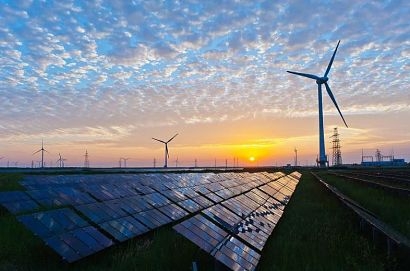
Augusta pointed to the favourable feedback from the renewables investor base, alongside the recent completion of highly complex transactions in the clean energy space.
The broader energy and infrastructure market has been hit hard by the global lockdown, with a significant dip in energy demand, and low activity across transport and other key sectors. Renewables infrastructure on the other hand has continued relatively unaffected, due in part to its preferential status in many electricity markets, its non-correlation top stock market returns and its stable yields. Investment and M&A activity is progressing strongly.
One example of this is the recent completion of Fortum’s 500 MW deal with Credit Suisse Energy Infrastructure Partners, which was successfully closed with Augusta’s support on May 18th. The deal covered a portfolio of three operational wind farms - the 32 MW Nygårdsfjellet, 50 MW Ånstadblåheia and 76 MW Solberg - and two under construction - 90MW Kalax and 154MW Sävar - across Norway, Finland and Sweden.
The deal involved multiple complexities on the debt including a senior project finance loan provided by Skandinaviska Enskilda Banken and National Australia Bank, along with a variety of offtake and subsidy structures, including a corporate PPA with offtaker Neste for some of the capacity. This illustrates that the market retains a capacity to handle sophisticated transactions with financing and PPA, despite the current market conditions.
Moreover, feedback from Augusta’s wider investor base indicates a number of key trends which suggest that, while the cost of project finance remains higher than before Covid-19, demand from investors in renewable energy is set to rapidly rebound, with current market volatility only affecting investment in the short-term.
All European markets recovered quite quickly from the lock-down electricity demand shock where major European markets were showing a 20 percent reduction in demand.
Electricity futures in all European markets are showing improved forward curve prices showing that market participants are concluding forward contracts at those prices.
The oil price is slowly recovering and while still a long way from what it was before is no longer so disastrously low as to make renewables investments in countries whose wholesale power prices have a dependency on oil impossible to do.
The private infrastructure fund market is well capitalised and keen to invest, anticipating future value opportunities in renewables.
Many GPs have dry powder to invest and renewables are attracting many that were looking at traditional infrastructure investments in transportation and mid-stream oil and gas before Covid-19.
Many investors cite the stable yield of electricity producing assets as a safe haven in these uncertain times when transportation and other sectors are suffering debt defaults and repossessions and oil and gas is impacted by the oil price shock.
Investors are seeing new financings closing albeit with more expensive debt terms.
Funding costs are currently elevated due to funding uncertainty but Augusta sees most projects being able to incorporate the additional debt cost burden because there are mitigating factors that lessen its impact.
Leverage ratios are generally slightly down with less debt being available but there is no effect on tenors, yet.
Liquidity is fundamentally strong but is being supported by central bank policy and so Augusta does not expect this to last long. It does make it important to negotiate refinancing options in the near term, when financing costs reduce.
High leverage in the corporate sector is generally perceived to be a risk but the banks remain well capitalised and strong compared to the financial crisis of 2008.
“The renewable energy industry is continuing to prove its resilience to major disruption with financial transactions and project development continuing to move ahead despite the demand shocks we have seen” said Mortimer Menzel, Partner at Augusta & Co. “We have not seen a reduction in investor interest for green electricity producing assets. Investor confidence in the market’s recovery remains high and we expect to see an acceleration in the number of deals during the summer, barring, of course, any setbacks in the recovery from the pandemic. Additionally, we see emerging trends being accelerated by the pandemic: for example a move towards financing without bank debt as investors realise that the stable, but lower returns, in this area mean that this form of financing does not add very much return, especially now when it is ~1 percent more expensive. Also, investors are moving more rapidly now to full merchant deals with a more nuanced and sophisticated approach to hedging in its various forms. We expect to see more full equity and more full merchant deals in future.”
For additional information:

